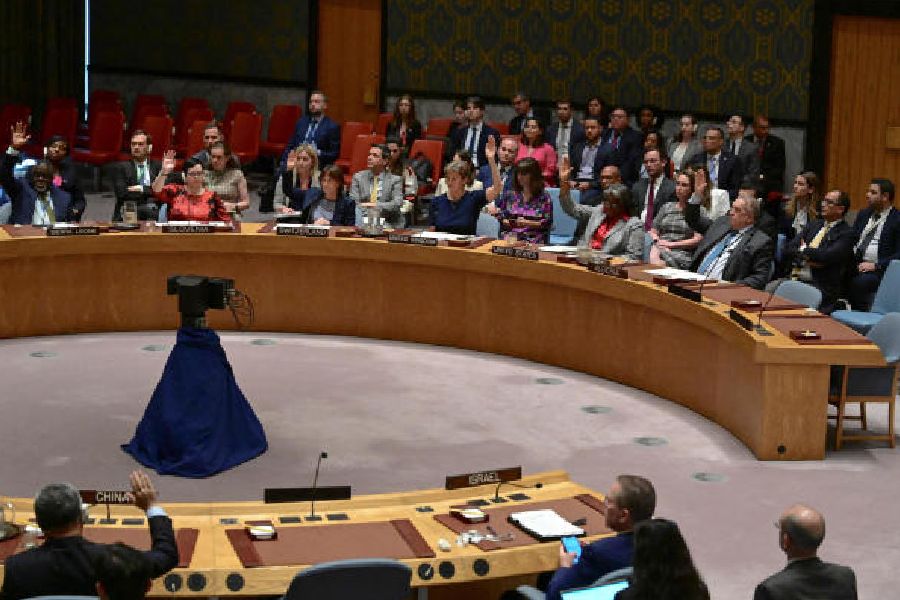The UN Security Council on Monday adopted a US-backed ceasefire plan for the Gaza Strip after Russia opted not to block it, adding extra heft to a growing international push for an end to the fighting.
Fourteen of the 15 council members voted in favour, with Russia — which has veto power — abstaining.
In passing the resolution, the council delivered a diplomatic victory to Washington, which had vetoed three previous ceasefire resolutions before the council.
“The only way to end this cycle of violence and build a durable peace is through a political settlement,” said Linda Thomas-Greenfield, US ambassador to the UN.
Thomas-Greenfield said that the US would work to make sure that Israel agreed to the deal and that Qatar and Egypt would work to bring Hamas to the negotiating table.
“Colleagues, today we voted for peace,” she said.
The resolution laid out a three-phase plan that begins with an immediate ceasefire, the release of all hostages in exchange for Palestinians being held in Israeli prisons, the return of displaced Gaza civilians to their homes and the full withdrawal of Israeli forces from Gaza.
The second phase calls for a permanent ceasefire with the agreement of both parties, and the third phase would consist of a multi-year reconstruction plan for Gaza and the return of the remains of deceased hostages.
“The proposal says if the negotiations take longer than six weeks for phase one, the ceasefire will still continue as long as negotiations continue,” the resolution said. It also rejected “any attempt at demographic or territorial change in the Gaza Strip, including any actions that reduce the territory of Gaza”.
Israel’s representative to the UN, Reut Shapir Ben-Naftaly, did not say that Israel had accepted the terms but said her country’s goals in the Israel-Hamas war had not changed and that it would use military operations to free hostages as it did just two days ago.
The Russian ambassador to the UN, Vassily Nebenzya, said the council remained in the dark about the details of the US’ agreement with Israel and had “essentially voted for a cat in the bag”.
But Nebenzya said Russia had decided to abstain because the resolution had widespread support from Arab countries.
The American Mission to the UN began drafting the resolution and negotiating over it in the days after President Joe Biden announced on May 31 that Israel had put forth a ceasefire deal. The resolution follows the same framework that Biden set out, according to Nate Evans, the spokesperson for the US mission.










